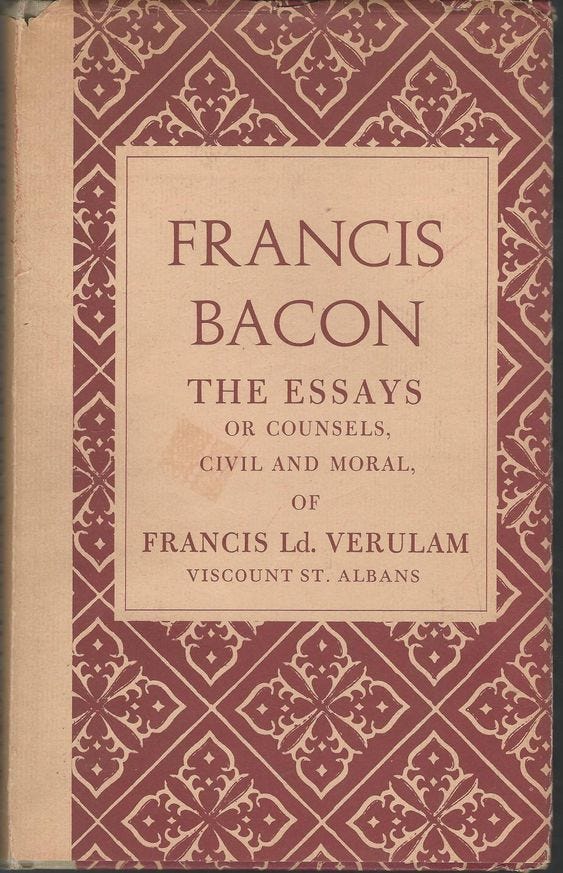Issue 6: Appreciating the Work of Francis Bacon - Essays, Conciseness, and the Richness of the Text
Francis Bacon's contributions to literature and philosophy are immortalized in his collection of essays, which remain celebrated for their conciseness and depth. Bacon's "Essays" are a testament to his ability to distill complex ideas into succinct, insightful prose. This issue explores the enduring appeal of Bacon's essays, highlighting their conciseness and the richness of their content.
The Art of the Essay
Bacon's "Essays," first published in 1597 and expanded in later editions, cover a wide range of topics including morality, politics, human behavior, and society. Each essay is crafted with precision, offering sharp observations and practical wisdom. Bacon's ability to convey profound thoughts in a concise format made his essays accessible to a broad audience, ensuring their longevity and influence.
Conciseness and Clarity
One of the most remarkable features of Bacon's essays is their conciseness. He mastered the art of brevity, packing substantial insights into short, tightly written passages. Bacon believed that clarity and economy of language were essential for effective communication. His essays are devoid of unnecessary embellishments, focusing instead on delivering clear and impactful messages.
For instance, in his essay "Of Studies," Bacon succinctly explores the benefits of reading, writing, and learning: "Reading maketh a full man; conference a ready man; and writing an exact man." In just a few words, he encapsulates the transformative power of education and intellectual engagement.
Richness of Content
Despite their brevity, Bacon's essays are rich in content. They delve into the complexities of human nature, offering timeless reflections on ambition, love, friendship, and other aspects of life. Bacon's keen observations and philosophical insights provide readers with a deeper understanding of themselves and the world around them.
The richness of Bacon's text lies in his ability to weave practical advice with philosophical musings. His essays often blend empirical observations with moral considerations, reflecting his belief in the interconnectedness of knowledge and virtue. This blend makes his essays not only intellectually stimulating but also morally instructive.
Influence and Legacy
Bacon's essays have had a lasting impact on literature and philosophy. They influenced subsequent generations of writers and thinkers, including notable figures like Michel de Montaigne, who is often credited with popularizing the essay form. Bacon's emphasis on clarity, brevity, and depth set a standard for essay writing that continues to be admired and emulated.
The themes explored in Bacon's essays remain relevant today. His reflections on power, ethics, and human behavior offer valuable insights for contemporary readers. The enduring appeal of his essays is a testament to Bacon's literary genius and his profound understanding of the human condition.
Conclusion
Francis Bacon's essays are a masterclass in the art of concise and rich writing. Their ability to convey deep insights in a clear and succinct manner has ensured their place in the canon of great literature. Bacon's blend of practical wisdom and philosophical reflection continues to inspire and educate readers, solidifying his legacy as one of the most influential essayists in history.
Stay tuned for the next installment, where we will explore Bacon's contributions to scientific methodology and how his ideas continue to shape modern science.


